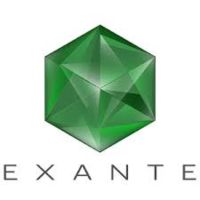
An exchange traded fund (ETFs) is a form of securities that tracks an index, sector, commodity, or other asset and may be bought and sold on a stock exchange much like a regular stock. An ETF can be set up to track anything from a single commodity’s price to a big and diverse group of securities. ETFs can even be built to follow certain investment strategies.
The SPDR S&P 500 ETF (SPY), which tracks the S&P 500 Index, is a well-known example. ETFs can hold a variety of investments, such as stocks, commodities, bonds, or a combination of them. An exchange traded fund is a marketable security, which means it has a price that can be purchased and sold easily.
Key Points:
- An exchange traded fund (ETF) is a collection of securities that trade like stocks on a stock exchange.
- Unlike mutual funds, which only trade once a day after the market closes, ETF share prices fluctuate throughout the day as the ETF is purchased and sold.
- ETFs can hold a variety of assets, including equities, commodities, and bonds; some are exclusive to the United States, while others are global.
- When compared to buying equities separately, ETFs have lower expense ratios and lower broker commissions.
Amount of Cash Invested in Exchange Traded Funds (ETFs)

The total amount of money invested in exchange-traded funds around the world in billions of dollars.
An ETF is a form of investment that, unlike a stock, holds numerous underlying assets rather than just one. ETFs are a popular alternative for diversification because they contain a variety of assets.
An ETF can own hundreds or thousands of equities from a variety of industries, or it can be focused on a single area or industry. Some funds are only focused on the United States, while others have a global vision. Banking-focused ETFs, for example, would hold stocks from a variety of banks across the industry.
EFTs’ Types
Investors can choose from a variety of ETFs that can be used to generate income, speculate on price gains, and hedge or partially offset risk in their portfolio. Here’s a rundown of some of the most popular ETFs on the market right now.
Industry EFTs
ETFs that focus on a single industry or sector are known as industry or sector ETFs. Companies operating in the energy industry, for example, will be included in an energy sector ETF. Industry ETFs are designed to provide exposure to an industry’s upside potential by following the performance of companies in that sector. One example is the IT sector, which has seen a recent flood of capital. At the same hand, because ETFs do not involve direct ownership of shares, the downside of erratic stock performance is also limited. During economic cycles, industry ETFs are also utilized to move in and out of sectors.
Bond EFTs
Bond ETFs are utilized to offer investors with a steady stream of income. The distribution of their earnings is determined by the performance of the underlying bonds. Government bonds, corporate bonds, and state and local bonds, often known as municipal bonds, are examples. Bond ETFs, unlike their underlying assets, do not have a set maturity date. They usually trade at a discount or premium to the actual bond price.
Stock EFTs
Stock ETFs are a collection of stocks that track a specific industry or sector. A stock ETF might, for example, track automotive or international stocks. The goal is to provide diverse exposure to a particular industry, one that comprises both high-performing companies and newcomers with growth potential. Stock ETFs, unlike stock mutual funds, have cheaper costs and do not require actual stock ownership.
Industry EFTs
ETFs that focus on a single industry or sector are known as industry or sector ETFs. Companies operating in the energy industry, for example, will be included in an energy sector ETF. Industry ETFs are designed to provide exposure to an industry’s upside potential by following the performance of companies in that sector. One example is the IT sector, which has seen a recent flood of capital. At the same hand, because ETFs do not involve direct ownership of shares, the downside of erratic stock performance is also limited. During economic cycles, industry ETFs are also utilized to move in and out of sectors.
Currency EFTs
Currency exchange-traded funds (ETFs) are pooled investment vehicles that monitor the performance of currency pairs that include both domestic and foreign currencies. Currency exchange-traded funds (ETFs) have a variety of uses. They can be used to speculate on currency prices based on a country’s political and economic trends. Importers and exporters use them to diversify their portfolios or as a hedge against volatility in the FX markets. Some of them are also employed as a form of inflation protection. Bitcoin even has its own exchange-traded fund (ETF).
Commodity EFTs
Commodity ETFs, as their name suggests, invest in commodities such as crude oil or gold. Commodity ETFs have a number of advantages. They first diversify a portfolio, making it easier to hedge against market downturns. Commodity ETFs, for example, can act as a safety net in the event of a stock market downturn. Second, owning shares in a commodity ETF is less expensive than owning the commodity itself. This is due to the fact that the former does not require insurance or storage.
Inverse EFTs
Shorting stocks is how inverse ETFs try to profit from stock falls. Shorting a stock is when you sell it and then buy it back at a cheaper price because you expect it to lose value. To short a stock, an inverse ETF makes use of derivatives. They are essentially wagers on the market falling. When the stock market falls, the value of an inverse ETF rises in proportion.
How to Get Started with ETF Investing?
Investing in ETFs has become very simple because to the several platforms available to traders. To begin investing in ETFs, follow the procedures listed below.
- Look for an investment platform.
- Examine ETFs
- What is your investment timeline?
- Do you want to invest for income or for growth?
- Do you have any favorite industries or financial instruments?
- Consider developing a trading plan.
Pros and Cons of EFTs:
Pros:
- Access to a diverse range of equities from a variety of industries
- Expense ratios are low, and broker commissions are low.
- Diversification helps to manage risk.
- There are ETFs that specialize on specific industries.
Cons:
- Fees for actively managed ETFs are higher.
- Single-industry-focus Diversification is limited with ETFs.
- Transactions are hampered by a lack of liquidity.












